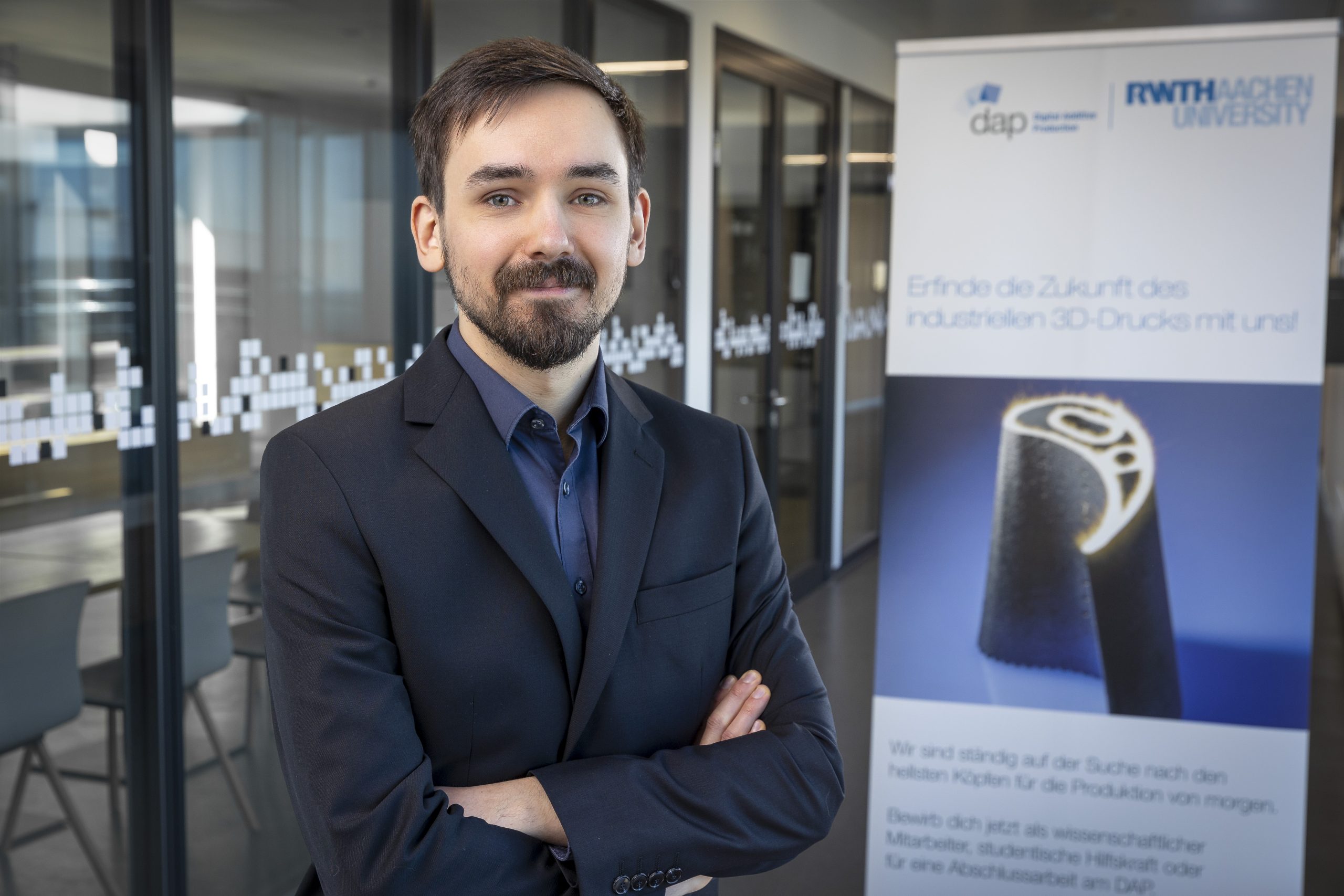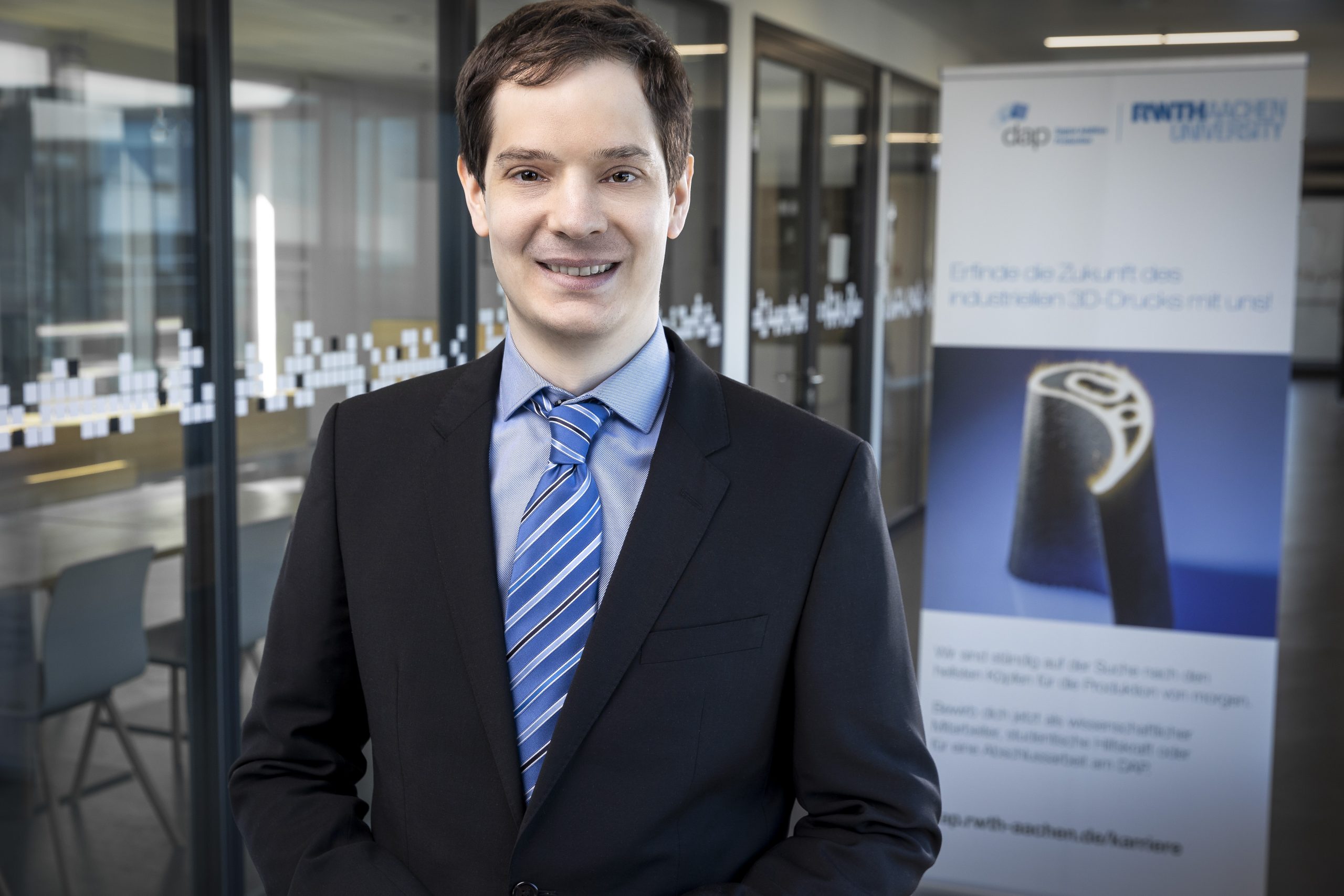Strong Together
Your Experts, Problem Solvers, and Advisors = Our Team
We are a young and dynamic team, fueled by passion and effectiveness. Our research at the DAP chair spans the full digital additive manufacturing process chain, boosting Germany’s economic position with groundbreaking solutions.
Join our network and transform your AM challenges into competitive advantages with us! Find your direct contact easily through our interactive filters.
Want to dive deeper into the specialties of our groups? → Explore the groups.
- All categories
- Administration
- Advanced Additive Manufacturing Group
- AM Education
- Board of Directors
- Business Case Evaluation
- Coating
- Data Driven Design Group
- Data Preparation + Production Planning
- Design Automation
- Digital Process Chain
- Digital Production Group
- Hybrid Process Chains Group
- Hydrogen
- IT
- Material Development
- Metallography + Analysis
- Post Processing
- Product Design
- Prototyping
- Public Relations
- Quality Assurance + Process Monitoring
- Repair
- Scanning Strategies + Machine Control
- Simulation
Our Groups’ Research Focus
- Digital Production
- Industrial Metaverse
- Data Driven Design
- Hybrid Process Chains
- Advanced Additive Manufacturing
- Research Areas
Digital Production
The Digital Production team delves into cutting-edge solutions for production planning and control in Additive Manufacturing (AM), crafting algorithms that require human interaction only when absolutely necessary.
We focus on:
- The automation of converting 3D models into production plans, aiming to reduce manufacturing costs while meeting deadlines and maintaining quality standards.
- The creation of algorithms for machine allocation, job nesting, and overall planning.
- Enhancing production efficiency right down to the level of machine control, particularly for multi-laser powder bed machines.
Data-Driven Design
The Data-Driven Design group concentrates on leveraging data to refine product development and manufacturing processes in the digital realm.
We focus on:
- Applying data analytics to improve design, increase process efficiency, and enable customization and personalization, whether in additive or traditional manufacturing.
- Cutting down the time it takes to bring new products to market.
Hybrid Process Chains
The Hybrid Process Chains team specializes in developing process chains for laser-based Directed-Energy-Deposition (DED) processes. From layering to the functionalization of prefabricated parts and creating complex components, we cover it all.
Highlights include:
- Innovating high-speed processes (HS-DED) and specialized system engineering.
- Testing unconventional post-processing techniques like rolling and machine surface hammering.
- Establishing experimental methodologies for material development.
Advanced Additive Manufacturing
Focused on the forefront of technology, the Advanced Additive Manufacturing group not only develops but also integrates cutting-edge techniques into the additive manufacturing process chain. Exploring beyond traditional methods, we delve into multimaterial 3D printing, beam shaping, adaptive process guidance, monitoring/control, and sensor integration to produce bespoke, highly functional components from metal, polymer, or ceramic materials.
Our key areas of research include:
- Exploring the capabilities of Laser Powder Bed Fusion, Metal Binder Jetting, and Aerosol Jet/Inkjet Printing.
- Enhancing post-processing methods through rigorous research and development.
Digital Materials
The “Digital Materials” research area encompasses activities focused on representing materials through locally modified properties. Special emphasis is placed on characterizing and numerically modeling microstructures and material properties. These can be tailored to specific applications either by designing lattice structures or through hybrid additive manufacturing technologies. Additionally, this research area includes the digital development of advanced alloys using Integrated Computational Materials Engineering (ICME).
Hydrogen
Hydrogen is seen as an essential raw material and energy source in the future carbon-neutral economy. The “Hydrogen” research area is developing components for the hydrogen economy and studying the materials needed to meet hydrogen’s specific requirements.
In this context, the research focuses on automating the design of hydrogen burners for energy-intensive industries such as steel production, aiming to quickly and customly replace existing natural gas burners. Furthermore, coatings for hydrogen transport pipelines and for electrolyzers used in hydrogen production are being developed.
Given the unique challenges hydrogen presents to the materials of the components used, the research area also investigates the hydrogen permeability of additively manufactured materials and the material aging caused by hydrogen embrittlement or contact with hydrogen flames.
This picture shows a component that was developed in one of our projects together with Kueppers Solutions GmbH.













































